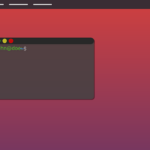Volunteer Management with Linux leverages the Linux command-line interface (CLI) to streamline and secure volunteer coordination, particularly for large-scale operations or community projects. The CLI's scripting and automation capabilities allow for efficient processing of data, with tools like `awk`, `sed`, and `sort` enabling precise management of volunteer information. These commands facilitate the filtering, reordering, and analysis of volunteer data, ensuring accurate task assignments and reports. The integration of Linux with database systems such as MySQL or PostgreSQL enhances data storage, querying, and analysis capabilities. Additionally, Linux's CLI supports robust security features, including role-based access control (RBAC), secure remote access via `ssh`, encrypted file transfers using `scp`, and real-time monitoring with `auditd`. Regular system updates and encryption tools like `gpg` are employed to maintain data integrity and comply with regulatory standards. Volunteer Management with Linux thus offers a secure, efficient, and scalable solution for managing volunteer programs, emphasizing the importance of this approach in maintaining high standards of security and efficiency.
Explore the realm of volunteer management through the lens of a Linux command-line interface (CLI), a powerful tool for streamlining operations, enhancing data analysis, and ensuring robust security measures. This article delves into the essentials of CLI, guiding power users to harness its capabilities for efficient task allocation, database management, and effective communication. Whether you’re new to Linux or an experienced user, discover how to optimize volunteer coordination with command-line tools that offer both precision and scalability. Join us as we navigate the practical applications of Linux CLI in the context of volunteer management, providing actionable insights for safeguarding data integrity and compliance within your organization.
- Leveraging Linux for Efficient Volunteer Management: Command-Line Interface Essentials
- Streamlining Task Allocation: Command-Line Tools for Scheduling and Assignment in Volunteer Management
- Data Organization and Analysis: Utilizing Linux CLI for Volunteer Database Management and Reporting
- Communication and Coordination Enhanced: Command-Line Interface Solutions for Volunteer Outreach and Notification
- Security and Compliance in Volunteer Management: Best Practices for Maintaining Data Integrity with Linux CLI
Leveraging Linux for Efficient Volunteer Management: Command-Line Interface Essentials

Volunteer management can be an intricate task, especially within the context of large-scale operations or community projects. Utilizing Linux for this purpose offers a robust and scalable platform, where efficiency and security are paramount. The command-line interface (CLI) in Linux serves as a powerful tool for volunteer coordinators to streamline their workflow, handle data with precision, and automate repetitive tasks. Mastery of the CLI is essential for leveraging the full potential of Linux in managing volunteers; it allows users to execute batch processes, script custom solutions, and manipulate extensive datasets with speed and accuracy. For instance, command-line tools like `grep` can quickly sift through logs or communications to identify relevant information, while `awk` and `sed` facilitate text processing for creating volunteer schedules or reports. Additionally, version control systems like Git, accessible via the CLI, enable collaborative work environments where multiple volunteers can contribute to a project without data conflicts. By integrating Linux’s command-line utilities into volunteer management practices, organizations can enhance their operational capabilities and ensure that volunteer efforts are both effective and efficient.
Streamlining Task Allocation: Command-Line Tools for Scheduling and Assignment in Volunteer Management

Data Organization and Analysis: Utilizing Linux CLI for Volunteer Database Management and Reporting

In the realm of volunteer management, efficiency and organization are paramount for ensuring that volunteers’ contributions are effectively harnessed and their efforts are properly tracked. Linux’s command-line interface (CLI) stands as a robust tool for managing and analyzing volunteer databases with remarkable precision and flexibility. The CLI’s ability to handle data through scripting, automation, and piping between commands enables volunteers’ information to be organized and manipulated in complex but manageable ways. For instance, Linux command-line utilities like `awk`, `sed`, and `sort` can process volunteer data files, filtering out specific entries or reordering records based on various criteria such as skill set, availability, or past contributions. This level of granularity allows for tailored reports that highlight the unique strengths of each volunteer, aiding in the assignment of tasks and roles that best suit their abilities.
Furthermore, leveraging Linux’s CLI for reporting purposes offers a scalable solution that can handle small-scale operations as well as large-scale projects. Tools like `grep` can search through logs to find specific volunteer activities, while `find` and `locate` commands can pinpoint where data is stored across the system. The integration of database management systems such as MySQL or PostgreSQL, accessible via the CLI, further enhances the capacity to store, query, and analyze large datasets. This allows volunteer managers to generate meaningful insights and reports with ease, ensuring that the organization’s volunteer program is both well-coordinated and data-driven. The command-line interface for power users in Linux thus becomes an indispensable asset for those tasked with the responsibility of volunteer database management and reporting.
Communication and Coordination Enhanced: Command-Line Interface Solutions for Volunteer Outreach and Notification

Volunteer management within the Linux environment can be significantly streamlined and enhanced through the use of command-line interface (CLI) solutions, which are often overlooked in favor of graphical tools. These CLI tools offer robust communication and coordination capabilities that are indispensable for volunteer outreach and notification processes. For instance, scripting with languages like Bash or Python within the CLI allows for the automation of repetitive tasks such as sending bulk emails or SMS messages to volunteers. This automation not only saves time but also ensures consistency in messaging and aids in the rapid dissemination of information, which is crucial during dynamic volunteer engagements.
Furthermore, the integration of CLI tools with existing volunteer management systems can provide real-time data processing and analysis functionalities. Utilizing command-line utilities such as Awk, Sed, and Sort, volunteers’ availability, skills, and preferences can be efficiently managed and matched with the appropriate tasks or events. This level of granularity and control is invaluable for organizations with large numbers of volunteers, where manual processes would not only be impractical but also prone to human error. The CLI’s ability to handle data at scale makes it a powerful ally in managing volunteer outreach and notification systems within Linux, demonstrating that Volunteer Management with Linux is a viable and effective approach for modern organizations.
Security and Compliance in Volunteer Management: Best Practices for Maintaining Data Integrity with Linux CLI

In the realm of volunteer management, maintaining data integrity and ensuring robust security practices are paramount to safeguard sensitive information and comply with regulatory standards. Utilizing Linux’s command-line interface (CLI) for volunteer management systems offers a powerful solution due to its strong access controls, auditing capabilities, and the ability to automate routine tasks securely. For instance, implementing role-based access control (RBAC) using commands like `useradd` and `usermod` can ensure that only authorized personnel have access to volunteer data. Moreover, leveraging tools such as `ssh` for secure remote access and `scp` for encrypted file transfers are essential practices that contribute to the overall security posture. Regular updates and patches managed through the CLI with commands like `apt-get update` and `apt-get upgrade` help protect against vulnerabilities. Additionally, Linux’s built-in auditing tools, including `auditd`, provide real-time insights into system activities, which is critical for maintaining compliance and detecting any unauthorized access attempts.
To further enhance security in volunteer management on Linux CLI, it is crucial to encrypt sensitive data both at rest and in transit. Utilizing tools like `gpg` for encryption and decryption ensures that personal information remains confidential. Regular backups managed through scripts can be combined with incremental backup solutions to prevent data loss while also optimizing storage usage. Furthermore, implementing strict file permissions with commands such as `chmod` and `chown` can prevent unauthorized users from accessing or modifying sensitive files. Regular security audits using the `linters` and `lgtm` tools help identify and rectify potential security issues within the scripts and configurations used in volunteer management workflows, thereby upholding data integrity and adherence to compliance standards.
Command-line interface (CLI) tools within Linux offer robust solutions for volunteer management, streamlining tasks from data organization and analysis to communication and coordination. By mastering these powerful command-line essentials, organizations can enhance efficiency, ensure security, and maintain compliance with data integrity standards. This exploration of leveraging Linux CLI for volunteer management showcases the practicality and effectiveness of this approach, offering a suite of tools that enable power users to handle complex tasks with ease. Incorporating these CLI practices into your volunteer management workflow can significantly improve operational productivity and support scalable, secure, and compliant operations. Embracing the command-line interface is not just a technical choice but a strategic one for those dedicated to managing volunteers effectively within Linux environments.


























